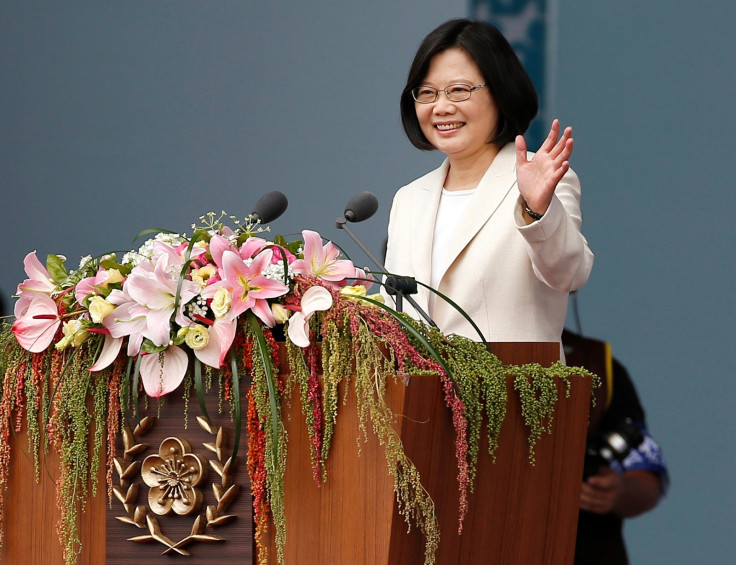Tsai Ing-wen: Taiwan's first female president omits mention of one-China policy in inaugural speech

Taiwan's new President Tsai Ing-wen has failed to mention the one-China policy during her inaugural speech, something Beijing was expecting to hear from her.
Taiwan's first female president was sworn in on 19 May after Tsai won the January 2016 elections by a landslide as the pro-independence party candidate. Her win has brought the Democratic Progressive Party, which has always favoured independence from mainland China, to power.
Tsai, in her first address to the nation on 20 May, said that she respected the "joint acknowledgements and understandings" reached between Taiwan and China at a landmark 1992 consensus meeting, which Beijing considers the foundation for all subsequent contacts and agreements between the two sides, the AP reported.
She announced that she would work to maintain peace and stability between the sides. However, the much-expected mention that Taiwan is and will continue to be a part of China was not explicitly stated by Tsai, which could trigger Beijing's anger.
China has already issued a warning to Taiwan against any attempts to declare independence as soon as Tsai won the polls. China has not ruled out the option of military exercises, diplomatic moves or cross-border deportations, the AP reported.
Things are not expected to be easy for Tsai, who will have to deal with a flagging economy ever since it fell into recession with exports dropped due to sluggish demand.
"The challenges are enormous and I think that she does not underestimate them," said Bonnie Glaser, a senior adviser for Asia at the Centre for Strategic and International Studies in Washington. The declining economic growth has added only much woe to her, especially with "China not making it any easier."
China is wary of Tsai taking over as the president, as her party has taken over after eight years of the country's rule under China-friendly Nationalist Ma Ying-jeou.
Political analysts had earlier said that Tsai could receive a backslash from Beijing.
"China's got a wide range of retaliatory measures waiting for Taiwan. I believe Tsai understands that and she will not step on the tripwire and cause trouble," Alexander Huang, a strategic studies expert in Taiwan, told the news agency.
A University of Michigan's professor, John Ciorciari, who follows Taiwan politics, said: "Since she won't say exactly what Beijing wants to hear about the 1992 consensus, a testy admonition from the Chinese leadership is sure to follow."
Although Tsai did not seek independence for Taiwan during her speech, China may still continue to emphasise its demand until the Taiwanese president endorses its 'one-China' theory, with some experts feeling that Beijing might even take further action if its demands are ignored.
"It is impossible for the mainland to get along with a party of a leader that doesn't recognise the one-China policy or seeks to split the country," Zhu Weidong from the Institute of Taiwan Studies in Beijing said.
"There will be no so-called cold peace, but will definitely be a fresh confrontation. In that case, the domestic and international situation for Taiwan will only get more and more difficult," Zhu added.
© Copyright IBTimes 2025. All rights reserved.





















